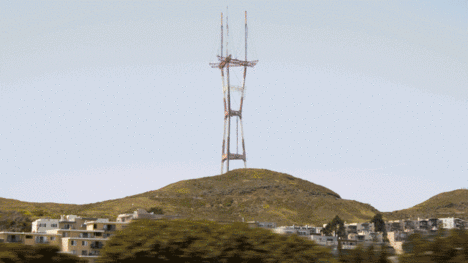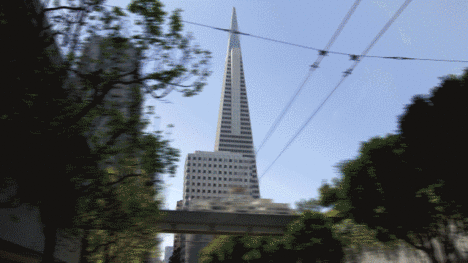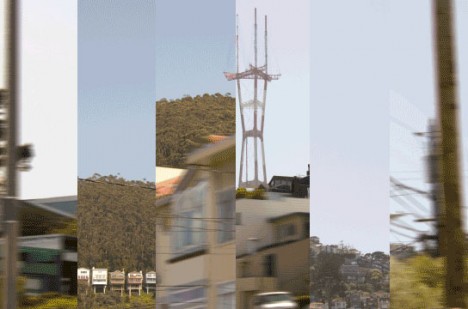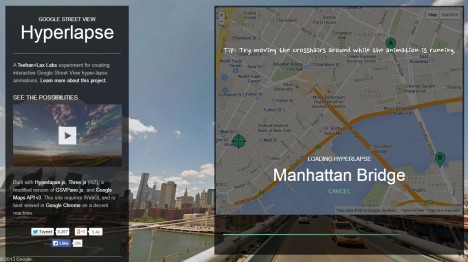You may have seen this amazing animation and thought it took an impossible amount of work to create, but there are multiple sites tools, and do-it-yourself tutorials that greatly simplify the process. This particular piece, which has been circulating the web, is a GIF from the music video below (scroll a few minutes in to see various examples).
Popular enough now to warrant its own definition and description, here is a summary of the trending phenomena: “Hyper-lapse photography [is] a technique combining time-lapse and sweeping camera movements typically focused on a point-of-interest.” Other names for this include: Walklapse, Spacelapse, Stop-Motion Time-lapse, Motion Timelapse and Moving Timelapse.
As for those wishing to follow suit and create something similar: the Google Street View Hyperlapse creator is by far the easiest online generator for these kinds of panoramic captures – you simply set start and end points as well as a point of focus then click a button. Be warned: experimentation with this tool may be habit-forming.
Per this tool’s creators, who have made their API-based work openly available on GitHub, “creating them [can] require precision and many hours stitching together photos taken from carefully mapped locations. We aimed at making the process simpler by using Google Street View as an aid, but quickly discovered that it could be used as the source material. It worked so well, we decided to design a very usable UI around our engine.”
For those who want to customize their work and take it to the next level, the video above walks creators through a more direct use of Google Maps, screen captures and more nuanced edits. While their approach presumes you have and know how to use a video editor (higher barrier to entry), they also go into more detail about how to pick the perfect shots. For instance, their video explains how to line them up and utilize motion blur effects in the foreground to enhance the visual experience – all techniques that can be applied in Photoshop or a similar program to GIFs as well as videos.
Finally, lest you think this is a brand-new fad, consider Devil’s Circuit from Takashi Ito, which took the same wraparound approach to buildings in 1988 – the big difference now is simply the accessibility and ease of tools with which anyone can make something of this kind.



